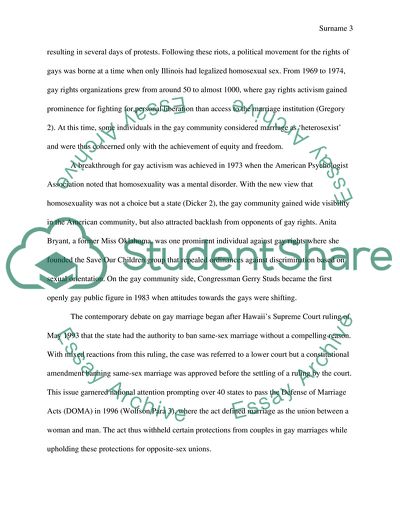Cite this document
(The Gay Marriage Debate Literature review Example | Topics and Well Written Essays - 2000 words - 3, n.d.)
The Gay Marriage Debate Literature review Example | Topics and Well Written Essays - 2000 words - 3. https://studentshare.org/gender-sexual-studies/1871994-gay-marriage
The Gay Marriage Debate Literature review Example | Topics and Well Written Essays - 2000 words - 3. https://studentshare.org/gender-sexual-studies/1871994-gay-marriage
(The Gay Marriage Debate Literature Review Example | Topics and Well Written Essays - 2000 Words - 3)
The Gay Marriage Debate Literature Review Example | Topics and Well Written Essays - 2000 Words - 3. https://studentshare.org/gender-sexual-studies/1871994-gay-marriage.
The Gay Marriage Debate Literature Review Example | Topics and Well Written Essays - 2000 Words - 3. https://studentshare.org/gender-sexual-studies/1871994-gay-marriage.
“The Gay Marriage Debate Literature Review Example | Topics and Well Written Essays - 2000 Words - 3”. https://studentshare.org/gender-sexual-studies/1871994-gay-marriage.


